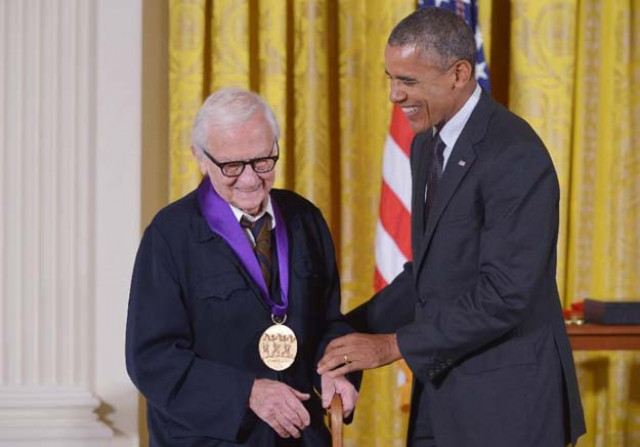Emmy winning US documentary filmmaker Albert Maysles dies at 88
The director had been suffering from pancreatic cancer, Dilday said.

Albert Maysles, the pioneering documentary filmmaker who immortalised The Rolling Stones' infamous 1969 concert at Altamont Speedway, has died, staff at his institute said Friday. He was 88.
Maysles, nicknamed the "dean of documentaries" for a series of groundbreaking films over a career spanning several decades, passed away late Thursday, Erika Dilday, executive director at the Maysles Institute told AFP.
The director had been suffering from pancreatic cancer, Dilday said.
Maysles and his late brother David were in the vanguard of the 'cinema verite' or direct documentary movement, among the first film-makers to capture their subjects without reference to scripts, sets, interviews or narration.
Maysles first significant foray into movies came in 1955 when he took his camera behind the Iron Curtain to capture a glimpse of life inside the Soviet Union's psychiatric hospitals.
The result of that trip, Pyschiatry in Russia, signaled the beginning of a career that saw Maysles and his brother emerge as two of the most important figures in 20th Century American film.
But it was the depiction of the ill-fated Rolling Stones concert at Altamont in California as the 1960s drew to a close that is arguably Maysles most famous work.
The 1970 film -- Gimme Shelter -- captured the tragic events surrounding the concert, when four fans died amid chaotic organization.
The Maysles brothers also won acclaim and controversy for their 1975 film Grey Gardens, which shone a light on Edith Bouvier and Edith Bouvier Beale, cousins of Jacqueline Kennedy Onassis, and their life in a decaying East Hampton mansion.
The film, criticized by some as exploitative, became the basis for an award-winning musical of the same name as well as an HBO television film version.
Maysles was critical of the trend towards documentaries which were forged to fit a certain worldview, telling AFP in a 2007 interview: ""I think it's a pity that people aren't making documentaries with higher expectations to tell the truth."
"Alfred Hitchcock put it beautifully. He said 'In a feature film the director is god. In a non-fiction feature film, god is the director,'" he said.
"It disturbs me when I hear other directors say things like 'documentaries are a fictional reality.' The one thing a documentary can do so beautifully is give us knowledge of the real world," he said.
"And if it's not the truth then it's not real knowledge."



















COMMENTS
Comments are moderated and generally will be posted if they are on-topic and not abusive.
For more information, please see our Comments FAQ